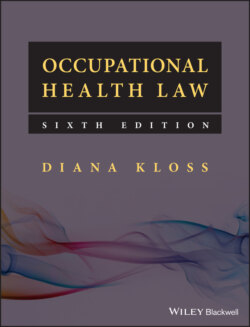Читать книгу Occupational Health Law - Diana Kloss - Страница 55
Blood‐borne virus health clearance
ОглавлениеAt first there was resistance from the health care professions to the compulsory testing of HCWs performing EPPs. Some surgeons called for the mandatory testing of patients since they considered that they were equally at risk of transmission of a virus from an infected patient. There was, of course, a fear that successful careers would be destroyed since for several years HCWs with BBVs were excluded from performing EPPs. A compromise was to introduce testing only for students and new entrants who would be likely to perform EPPs. A new HCW is defined as an individual who has direct clinical contact with patients in the NHS or independent sector for the first time. Existing HCWs who are moving to a post, or undergoing training that involves EPPs for the first time in their career, are also considered as new. So too are returning HCWs, depending on what activities they have been engaged in while away from the NHS, for example if they have worked abroad or been involved in research which may have exposed them to a blood‐borne virus.
Originally, all students training as doctors had to undertake EPPs at some time in their training but it is now possible to qualify as a doctor without performing EPPs so that BBV testing is not mandatory for medical students. Psychiatrists do not need training in surgery. Additional health clearance is not necessary for nursing students, as performance of EPPs is not a requirement of the curriculum for pre‐registration student nurse training. However, since most of the tasks performed by dentists and some of those performed by midwives are EPP, dental and midwifery students need BBV health clearance from the start of their training.
